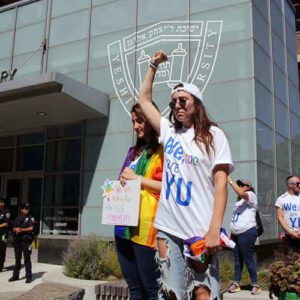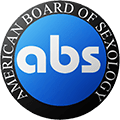
Aug. 29, 2022, 2:56 PM; Updated: Aug. 29, 2022, 3:54 PM
Bloomberg Law News
Yeshiva University wants the US Supreme Court to intervene in a dispute over the establishment of a pride student group, in the latest national legal clash over LGBTQ protections and the free exercise of religion.
The school asked the justices on Monday to stay a state court ruling that found its refusal to recognize the YU Pride Alliance violates the New York City Human Rights Law prohibiting discrimination based on sexual orientation. The filing requested an emergency order or that the justices agree to take up and fast-track the case.
A New York trial court in June ordered the school to give the group “the full and equal accommodations, advantages, facilities, and privileges afforded to all other student groups at Yeshiva University.” Subsequent appeals to stay the ruling were denied.
Yeshiva says forcing it to recognize the group would violate its Jewish principles. The “ruling is an unprecedented intrusion into Yeshiva’s religious beliefs and the religious formation of its students in the Jewish faith,” the school said in its request for emergency action.
The club’s application process opened on Aug. 26 and runs through Sept 12.
The dispute mirrors others pitting religious beliefs against local anti-discrimination laws.
For instance, the Supreme Court in 2021 said Philadelphia’s refusal to contract with Catholic Social Services for foster care services because the organization would not place children with same-sex couples violated the First Amendment. And in 2018, the justices sided with a Colorado baker who refused to make cakes for same-sex weddings based on his religious beliefs.
The Supreme Court in the term beginning in October will consider a similar case involving a Colorado web designer required to make custom wedding sites for same-sex couples despite her religious objections to same-sex marriage.
New York’s human rights law prohibits discrimination in employment, housing, and public accommodations, as well as harassment and bias-based profiling. Gender identity and sexual orientation are among protected classes.
Exemptions from the law are permitted, including for religious corporations.
But in her ruling, Justice Lynn R. Kotler of the State Supreme Court in Manhattan said Yeshiva was formed as an educational entity and that “formal recognition of a student group does not equate to endorsement with that group’s message.” She said pride alliance only seeks “equal access” to the benefits Yeshiva gives other student groups.
The school is represented by the Becket Fund for Religious Liberty, which has successfully litigated several religious freedom cases before the Supreme Court. The court’s current 6-3 conservative majority has robustly interpreted the Constitution’s Free Exercise Clause, siding frequently with religious groups like Becket.
The pride group’s attorneys from Emery Celli Brinckerhoff Abady Ward & Maazel said in a statement that the trial court ruling was based on “long-settled” precedent that Yeshiva is a public accommodation and must comply with the city law like other universities.
“While the university is free to hold its own religious beliefs, it can’t provide some students full access to its facilities – meeting spaces, bulletin boards, club fairs—and deny others the same benefits because they are LGBTQ,” the statement said.
The Supreme Court has asked the pride group to respond by Sept. 2.
The case is Yeshiva University v. YU Pride Alliance, U.S., No. 22A184.
To contact the reporter on this story: Kimberly Strawbridge Robinson in Washington at [email protected]
To contact the editors responsible for this story: Seth Stern at [email protected]; John Crawley at [email protected]

